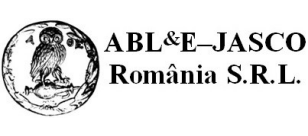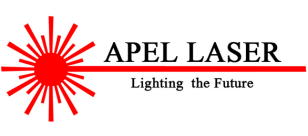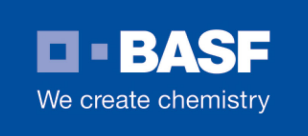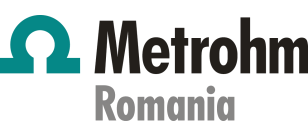Conference
Invited Speakers
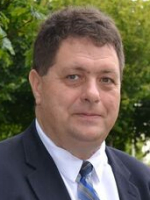 Mihail BARBOIU
Mihail BARBOIUUniversity of Montpellier, FRANCE
Mihail Barboiu graduated from University Politehnica of Bucharest and received his PhD in 1998 from the University of Montpellier before spending 2 years as post-doctoral researcher at the University Louis Pasteur in Strasbourg. He is CNRS Research Leader at the Institut Europeen des Membranes in Montpellier and Fellow of Royal Society of Chemistry. Since 2014 he is also Extraordinary Professor in Sun-Yat-sen University in Guangzhou, China. A major focus of his research is Dynamic Constitutional Chemistry toward Dynamic Interactive Systems: adaptive biomimetic membranes, delivery devices etc. Author of more than 220 scientific publications, 3 books and 20 chapters and 330 conferences and lectures, Dr Barboiu has received in 2004 the EURYI Award in Chemistry and in 2015 the RSC Surfaces and Interfaces Award for the development of Artificial Water Channels.
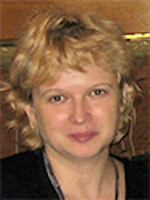 Gabriela CARJA
Gabriela CARJAGheorghe Asachi Technical Univeristy of Iasi, ROMANIA
Gabriela Carja is Professor of Physical Chemistry in the Department of Chemical Engineering of Technical University “Gheorghe Asachi” of Iasi and received her Ph.D. in the subject of industrial catalysis in 1996. After that she was a UNESCO research Fellow at Tokyo Institute of Technology Japan and did a postdoctoral stage at Institute Superior Technique of Lisbon, Portugal. She was graduated the UNESCO advanced research course for chemistry and chemical engineering held between 1999-2000 in Japan and was awarded the medal of Tokyo Institute of Technology. She received the Romanian Academy “Gheorghe Spacu” award in 2009. She was a DC Rapporteur at European Cooperation in Science and Technology Commission (COST) of EU for Physics, Materials and Nanoscience Domain, between 2010-2014 and expert of EU Commission for evaluating research projects. She was a member of CNCIS and CNCS of Romania in 2008, 2011 and 2016 and a member of CNE in 2016. She has acted as a scientific referee for international journals in the fields of applied materials (e.g. Applied Catalysis B, Journal of Catalysis, Chemistry of Materials, Chemical Communication, Environmental Science and Technology). She was employed as visiting professor at Tokyo Institute of Technology Japan in 2012 and University Blaise Pascal, France in 2013. She has co-authored over 130 peer-reviewed scientific publications and organized some international conferences in the area of material science and engineering. She has directing Ph.D. theses in Chemical Engineering and she has supervised 11 PhD students and 2 postdoctoral fellows. In particular, her work has focused on tailoring novel nanoarchitectonics for environmental catalysis and materials applications in the fields of new energy production and environmental remediation.
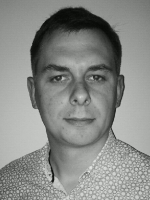 Karol CHOMICKI
Karol CHOMICKIELSEVIER
Karol has a background in both chemistry and physics. After his graduation he held several managerial positions within an in-vitro diagnostics industry where he was responsible for business development for several international markets. In 2017 he has joined Elsevier as a Key Account Manager, being responsible for Elsevier’s life sciences portfolio in the region of Central and Eastern Europe.
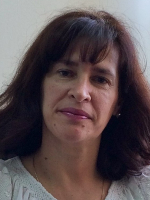 Magdalena IONITA
Magdalena IONITAOMV Petrom, ROMANIA
Magdalena Ionita is Head of Technical Development at OMV Petrom, in charge with strategic development of Petrobrazi Refinery. She graduated Oil and Gas University Ploiesti in 1994 and joint National Oil Company as Process Engineer in Arpechim Petrochemical Site. While gaining expertise in Olefins production and processing, she developed skills in process simulation and introduced multiple innovative solutions on both process and energy efficiency increasing. In 2006, Magdalena was appointed Head of Process Engineers in OMV Petrom / Arpechim Refinery, in charge with site optimization and integration of the latest investments. In 2011, she joint Upstream Asset Development OMV Petrom, as Head of Data and Knowledge Management, in charge with launching advanced water treatment for enhanced oil recovery. Since 2013, Magdalena is heading Technical Development in Petrobrazi Refinery and being a strong contributor to successful implementation of major modernization programs 2014-2018, as well as reshaping configuration of the Refinery for sustainable long-term market position in South-Eastern Europe.
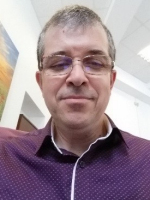 Horia IOVU
Horia IOVUUniversity Politehnica of Bucharest, ROMANIA
HORIA IOVU is professor of polymer science and technology, chemist engineer, specialization in Composite Materials (Manchester Metropolitan University, U.K., 1994-1995), PhD in Chemistry and Technology of Polymers (1995); full professor since 1999 (University Politehnica of Bucharest – Department of Bioresurces and Polymer Science); Member of the National Council for Research in Higher Education (CNCSIS) (2005-2011); President of the National Council for awarding the universitary titles in Romania, the field of Chemical Engineering (since 2006); Vice-Rector / Director of Council for Doctoral Studies (since 2012); Full member of the Romanian Academy of Scientists; Fellow of the Royal Society of Chemistry (FRSC), Fellow of the Romanian Chemical Society. Professional experience: elastomers synthesis by polymerization of dienes with lanthanide-based catalysts, composite materials-synthesis and design, nanocomposite materials based on polymer matrices reinforced with silicates, nanocomposite materials based on polymer matrices reinforced with carbon nanotubes / graphene, carbon nanotubes – modification and compatibilization, biomaterials for scaffolds, collagen-HAP-synthetic polymers composites, polymer-based drug delivery systems. Scientific activity: Group leader for the research group The Advanced Polymer Materials Group (since 2005) devoted to synthesis and characterization of new nanocomposites based on various polymers and reinforcing agents (www.apmg.pub.ro) for various applications including bioengineering, author / coauthor of more than 165 papers published in ISI – rated journals, 6 books published at national level and 5 book chapters at international level, Editor-in-chief "Materiale Plastice" ISI-rated journal.
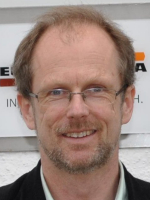 Philip JAEGER
Philip JAEGEREurotechnica GmbH, GERMANY
Chemical engineering degree 1992
PhD 1997 “Supercritical liquid fractionation using carbon dioxide”
Habilitation 2014 “Interfaces in EOR and EGR”
Lecturer at Hamburg University of Technology:
“High pressure technology” and “Colloids in Process Engineering”
Various courses and workshops on High Pressure Technology around the world
Managing Director of Eurotechnica GmbH, Germany since 1998
Areas of expertise and scientific investigation
- Supercritical fluid extraction and related technologies.
- Interfacial phenomena in enhanced oil recovery and CCS.
- Thermodynamics of interfaces and Mass Transfer at elevated pressures.
- Behaviour of polymers in presence of compressed gases.
- Physico-chemical properties of fluid mixtures at process conditions.
- High pressure equipment design.
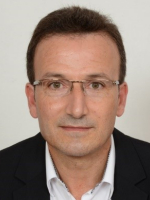 Jean-Nöel JAUBERT
Jean-Nöel JAUBERTEcole Nationale Superieure des Industries Chimiques, Nancy, FRANCE
Jean-Noël JAUBERT was born in 1967, Marseille, France. He is a Professor of chemical engineering thermodynamics at ENSIC (École Nationale Supérieure des Industries Chimiques). A Grande École like ENSIC is a state–run institution of higher education characterized by a highly selective admission procedure and is thus restricted to the best 10 % of high-school students. He received his doctorate in 1993 from University of La Méditerranée. He is reviewer for over 60 leading international journals and has published more than 150 research papers. He is the French delegate at the working party thermodynamics and transport properties of the EFCE and currently runs the research group "Thermodynamics and Energy" of the LRGP (Laboratoire Réactions et Génie des Procédés). His research interests include the development of predictive thermodynamic models based on the group contribution concept, the development of mixing rules for equations of state, the use of exergetic life cycle assessment in order to reduce CO2 emissions, the measurement and correlation of liquid-vapour equilibrium under high pressure, enhanced oil recovery, and the development of complex algorithms to compute global phase diagrams with emphasis to stability analysis.
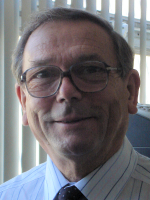 Timothy MASON
Timothy MASONCoventry University, UNITED KINGDOM
Tim Mason was born in Torquay, England in 1946 he attended Southampton University, graduated in Chemistry and received his PhD in Organic Chemistry in 1970. After two years as a NATO Fellow at Amherst College (USA) he returned to the UK and eventually moved to Coventry University in 1975. He was appointed Professor of Chemistry in 1989 and awarded a D.Sc. for this research into sonochemistry in 1996. He was appointed as an emeritus professor in 2016 and before that he had served as president if the European Society of Sonochemistry and Editor in Chief of the journal “Ultrasonics Sonochemistry”. His interests are in a range of applications of power ultrasound technologies including green chemistry, environmental protection, materials processing, food processing, electrochemistry and therapeutic ultrasound. He has produced over 300 publications 30 chapters and 15 books in the field of sonochemistry.
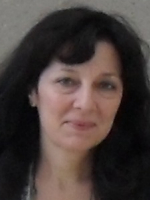 Adamantini PARASKEVOPOULOU
Adamantini PARASKEVOPOULOUAristotle University of Thessaloniki, GREECE
Dr. Adamantini Paraskevopoulou received her PhD in “Food Chemistry” from the Department of Chemistry at the Aristotle University of Thessaloniki (Greece). She is an Associate Professor in the Laboratory of Food Chemistry and Technology of the Department of Chemistry (Aristotle University of Thessaloniki, Greece) and she teaches Food Chemistry and Analysis, Food Quality Management, Enology, Food Physical Chemistry, Research Methodologies in Food Science and Sensory Evaluation of food to undergraduate and postgraduate students. Her research interests include the study of food biopolymer functionality (emulsions, foams), rheology and texture study of simple and mixed gel systems and food products (e.g. baked products), determination of the volatile fraction composition of foods for assessing their aroma quality characteristics, retention of flavour compounds in food dispersions and model food systems, microencapsulation of flavour compounds, and exploitation of industrial by products for the preparation of novel value-added products and additives (e.g. bioflavours). She has participated in many national and international research projects either as coordinator or team member. She has served as a reviewer for more than 20 scientific journals. Dr. Paraskevopoulou has published over 120 scientific articles as book chapters, journal articles and conference proceedings.
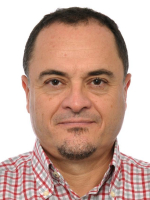 Luis SANTOS
Luis SANTOSBASF HQ, GERMANY
Luis Santos was born in Sao Paulo, Brasil in 1958, getting later the Portuguese nationality and he is graduated in Chemical Engineering by IST University in Portugal (1984). He has experience in development for industrial and anti-corrosive paints, working in laboratories of Tintas Berger Portugal, at the beginning of his activity. Starting with 1990, he joined BASF, being responsible for technical and marketing activities, in order to develop portuguese market for architectural and industrial coatings. In 1997 he transferred his responsibilities for BASF in Italy, where during the next 8 years, he continued the work in developing Italian market for Paints and Coatings (regarding main raw materials: binders, additives and pigments). Since 2005, he is responsible at the BASF HQ in Germany, for technical marketing in different regions in the world. In the current activity he is developing markets for paints and coatings in markets from South and East Europe, middle East and Africa, bringing new technologies for binders and additives used in architectural coatings. He has also special contribution in developing binders for elastomeric coatings.
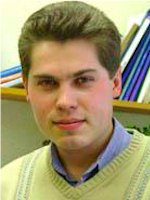 Serguei SAVILOV
Serguei SAVILOVLomonosov Moscow State University, RUSSIAN FEDERATION
Serguei V. Savilov was born in the city of Podolsk, at Moscow region of the Soviet Union. In 2000 he was graduated from Chemistry Department of M.V. Lomonosov Moscow State University, where got the Ph.D. degree in inorganic chemistry in 2004. During the study he had a practice in Wacker Chemie (Germany, 1998) and Royal Institute on Technology (Sweden, 2001-2002). At 2000 he got the position of junior scientific researcher, 2003 – scientific researcher, 2005 - senior scientific research, 2013 – leading scientific researcher of Catalysis and Gas Electrochemistry Laboratory in the Division of Physical Chemistry of the Chemistry Department of MSU. Since 2009 – Associated Professor in Physical Chemistry. In 2010 - Savilov S.V. got the position of leading researcher in A.V. Topchiev Institute of Petrochemical Synthesis of the Russian Academy of Sciences and in 2011 - senior researcher in N.S. Kournakov Institute of General and Inorganic Chemistry of the Russian Academy of Sciences. From 2011 to 2013 – leading engineer in National Research Center “Moscow Energy Institute”. Since 2004 – vice head and from 2016 - head of MSU Chemistry Department Equipment Center "Nanochemistry and Nanomaterials", involving more than 15 units of expensive analytical devices, including HR TEM, XPS, XRD. At 2018 Savilov S.V. got the Dr. habil degree in Physical Chemistry. He has more that 100 published articles, book chapters and patents, he is a lecturer on "Physical Methods in Chemistry" for students of Chemistry Department of Moscow State University and responsible person for their practice on unique scientific instruments.
 Olivier SIRI
Olivier SIRICentre Interdisciplinaire de Nanoscience de Marseille - (CNRS / Aix-Marseille Université), FRANCE
Olivier Siri obtained his PhD (1997) from the University of Burgundy in Dijon. Subsequently, he worked as post-doctoral fellow in Prof. Kevin M. Smith’s group at the University of California in Davis (1997-199 8) ; and then spent 6 months at the University of Neuchâtel (Neier group, Switzerland). He joined the CNRS in 1999 at the University of Strasbourg and moved in 2005 at Aix-Marseille University. He is currently Director of Research (CNRS) and group leader at CINaM laboratory. He is also deputy director of CINaM. His main research interests deal with the synthesis of molecular and supramolecular conjugated pi-systems with applications in nanoscience, photonic and electronic. He is an author and co-author of about 100 publications and patent applications, and has given 80 plenary, keynote, and invited talks.
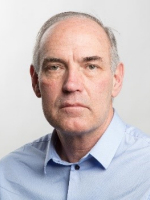 Sigurd SKOGESTAD
Sigurd SKOGESTADNorwegian University of Science and Technology (NTNU), NORWAY
Sigurd Skogestad received the Siv.ing. degree (M.S.) in chemical engineering at NTNU in 1978. He worked from 1980 to 1983 with Norsk Hydro in the areas of process design, thermodynamics and simulation. Moving to the US, he worked 3.5 years under the guidance of Manfred Morari, receiving the Ph.D. degree from the California Institute of Technology in 1987. He has been a full professor at NTNU since 1987. During the period 1999 to 2009 he was Head of Department of Chemical Engineering . Since 2015 he is the Director of SUBPRO, a multi-disciplinary center on subsea technology at NTNU. The author of more than 200 international journal publications and more than 200 conference publications, he is the principal author together with Ian Postlethwaite of the book "Multivariable feedback control" published by Wiley in 1996 (first edition) and 2005 (second edition). Dr. Skogestad was awarded "Innstilling to the King" for his Siv.Ing. degree in 1979, a Fullbright fellowship in 1983, received the Ted Peterson Award from AIChE in 1989, the George S. Axelby Outstanding Paper Award from IEEE in 1990, the O. Hugo Schuck Best Paper Award from the American Automatic Control Council in 1992, and the Best Paper of the Year 2004 Award from Computers and Chemical Engineering. He is a Fellow of the International Federation of Automatic Control (IFAC) (2014) and a Fellow of the American Institute of Chemical Engineers (2012). The goal of his research is to develop simple yet rigorous methods to solve problems of engineering significance. Research interests include the use of feedback as a tool to reduce uncertainty, change system dynamics and generally make the system more well-behaved (including self-optimizing control) distillation column design, control and dynamics. His other main interests are mountain skiing (cross country), orienteering (running around with a map) and grouse hunting.
 Mihaela STEFAN
Mihaela STEFANUniversity of Texas at Dallas, USA
Mihaela C. Stefan received her B.S. in Chemical Engineering and Ph.D. in Chemistry from Politehnica University Bucharest, Romania. She joined the Department of Chemistry and Biochemistry at the University of Texas at Dallas in 2007, and she is currently a Eugene McDermott Professor and Graduate Associate Dean in the School of Natural Science &Mathematics. She also holds a joint appointment in the Bioengineering Department in the Erik Jonsson School of Engineering and Computer Science. She received the NSF Career Award in 2010, the NS&M Outstanding Teacher Award in 2009 and 2017, the Inclusive Teaching Diversity Award in 2012, the President’s Teaching Excellence Award in 2014, and the Provost’s Award for Faculty Excellence in Undergraduate Research Mentoring in 2015. Her research group is developing novel organic semiconductors for organic electronics, biodegradable and biocompatible polymers for drug delivery applications, and lanthanide catalysts for polymerization of dienes and cyclic esters. She published more than 120 papers in peer-reviewed journals, 5 patents, and a few book chapters.
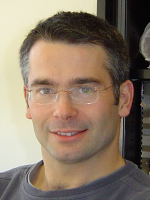 Franck SUZENET
Franck SUZENET
University of Orléans, FRANCE
Franck SUZENET is Professor in Organic Chemistry at the University of Orléans and CHeMBioLTE team leader at the Institute of Organic and Analytical Chemistry, Orléans. He has as research interests: development of organic fluorophores, design and synthesis of near infrared optical imaging probes, design and synthesis of biological active molecules for the treatment of nervous central system diseases and he received for his research achievements the award Prix Enseignant-Chercheur of the French Chemical Society, Organic Division, 2011. He supervised 23 postdoctoral researchers, 22 PhD students and 14 master students. Author of over 90 publications, 2 chapters of encyclopedia, 7 patents.
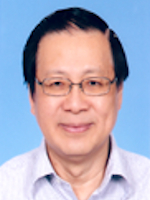 Ai Kah SOH
Ai Kah SOH
Monash University Malaysia, MALAYSIA
A.K. Soh graduated from the National University of Singapore in 1975 and obtained his Ph.D. from the University of Surrey (U.K.) in 1980. He started his academic career in 1983 at Nanyang Technological University (NTU), Singapore; and he left NTU in August 1996 to join the Department of Mechanical Engineering, The University of Hong Kong (HKU). He was promoted to Full Professor in 2003, and he served as an Associate Dean in the Faculty of Engineering, HKU, from 2007 – 2009. He left HKU in March 2013 to join Monash University (Sunway Campus) as the Head and Professor of Mechanical engineering. He is a Fellow of both Institute of Mechanical Engineers (UK) and Hong Kong Institute of Engineers. He has been pursuing research in Advanced Functional Materials since 1999. To-date, he had won more than US$3 million competitive research funding for studying advanced functional materials. He has published more than 270 ISI journal papers, 5 Book Chapters, and has presented 9 Plenary Papers, more than 50 Invited Conference papers/Lectures and about 80 Conference Papers. He has collaborated with world renowned researchers in Brown University, Washington University, National University of Singapore, Peking University, Tsinghua University, and National Taiwan University.
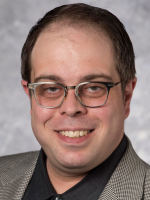 Nicolay TSAREVSKY
Nicolay TSAREVSKY
Southern Methodist University, Dallas, U.S.A.
Nick Tsarevsky obtained M.S. degree in theoretical chemistry and chemical physics in 1999 from the University of Sofia, Bulgaria, and Ph.D. degree in chemistry in 2005 from Carnegie Mellon University under the supervision of Prof. Kris Matyjaszewski. He was Visiting Assistant Professor at the Department of Chemistry at Carnegie Mellon University (2005-6), and a member of the founding team of ATRP Solutions, Inc., of which he served as Chief Science Officer (2007-2010). He joined the Department of Chemistry at Southern Methodist University in the summer of 2010 as an assistant professor, and in 2016 he was promoted to associate professor with tenure. He has authored and coauthored over 95 peer-reviewed journal articles and book chapters, 1 textbook, and has served as the co-editor of 5 books. He received several awards including, recently, an IUPAC Young Observer Fellowship and an NSF CAREER award. Research interests include polymerization techniques, functional materials, coordination chemistry and catalysis, and the chemistry hypervalent compounds, in addition to history of chemistry and chemical education. He serves as Editor of Polymers for Advanced Technologies (Wiley) as well as the program chair of the Division for the History of Chemistry (HIST) of the ACS.
 Lucyna WOŹNIAK
Lucyna WOŹNIAK
Medical University of Lodz, POLAND
Professor Lucyna Woźniak, PhD, DSc, graduated from the Technical University of Łódź. After PhD from the Polish Academy of Sciences and a post-doc in Kings College London, with prof. Colin Reese, FRS, he got habilitation (DSc.) from The Centre of Molecular and Macromolecular Studies Polish Academy of Sciences in the field of synthesis of P-Chiral analogs of DNA/RNA for antisense therapy. Professor at the Medical University of Lodz(MUL) working in the field of medical chemistry and molecular biology. Interested in diabetes in context of pregnancy induced diabetes (GDM) as an early predictor of type two diabetes in women population. Sheservesasa Deputy Director of the Healthy Ageing Research Centre (HARC), Medical University of Lodz since 2012. ViceRector for Science and International Affairs and Head of Department of Structural Biology at Medical University of Lodz. Member of Supervisory Board EIT HEALTH and Innovation Strategic Board of EITHEALTH. Member of High Level Group on maximising impact of EU Research and Innovation Programmes (Pascal Lamy Group).
